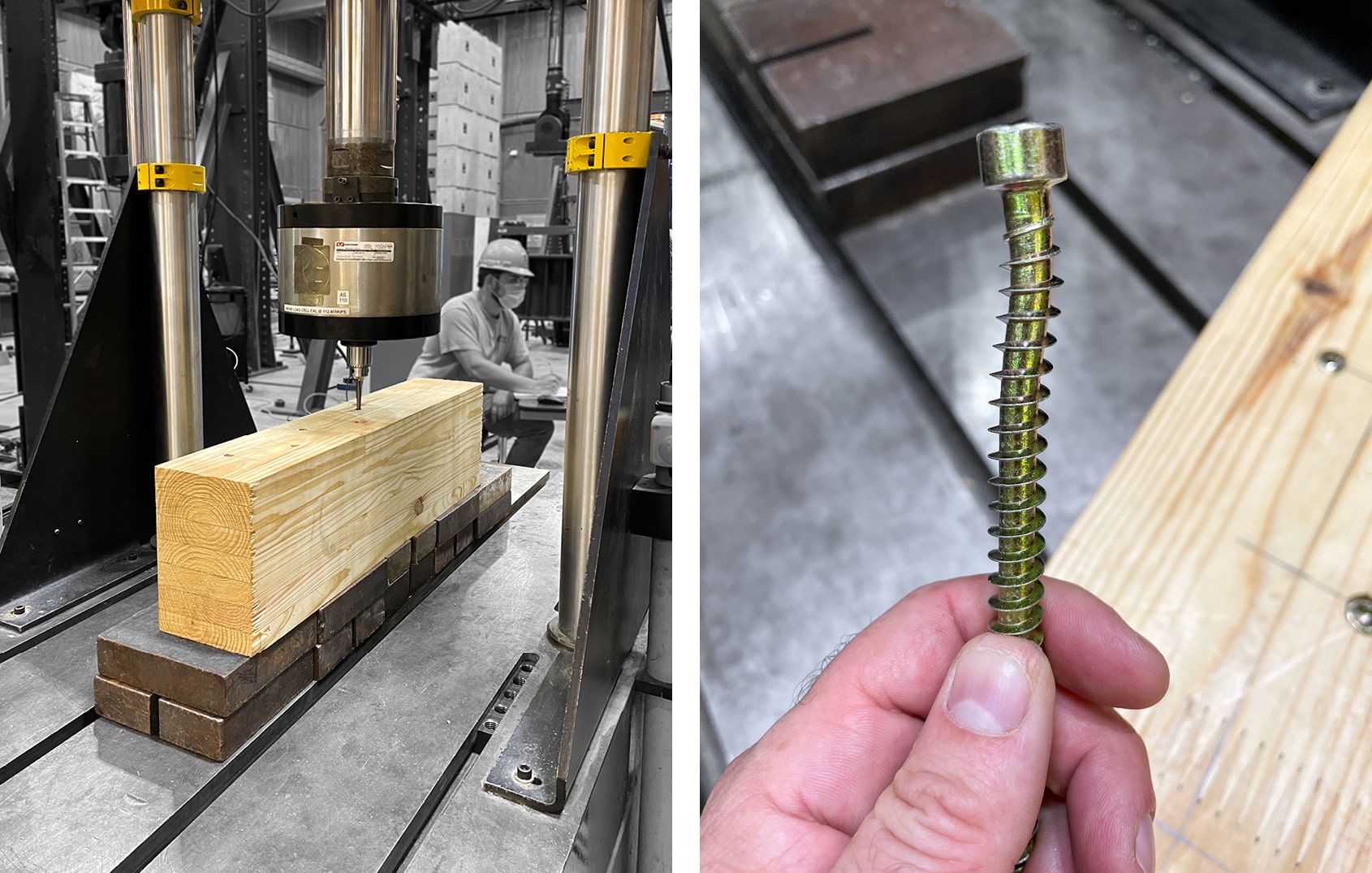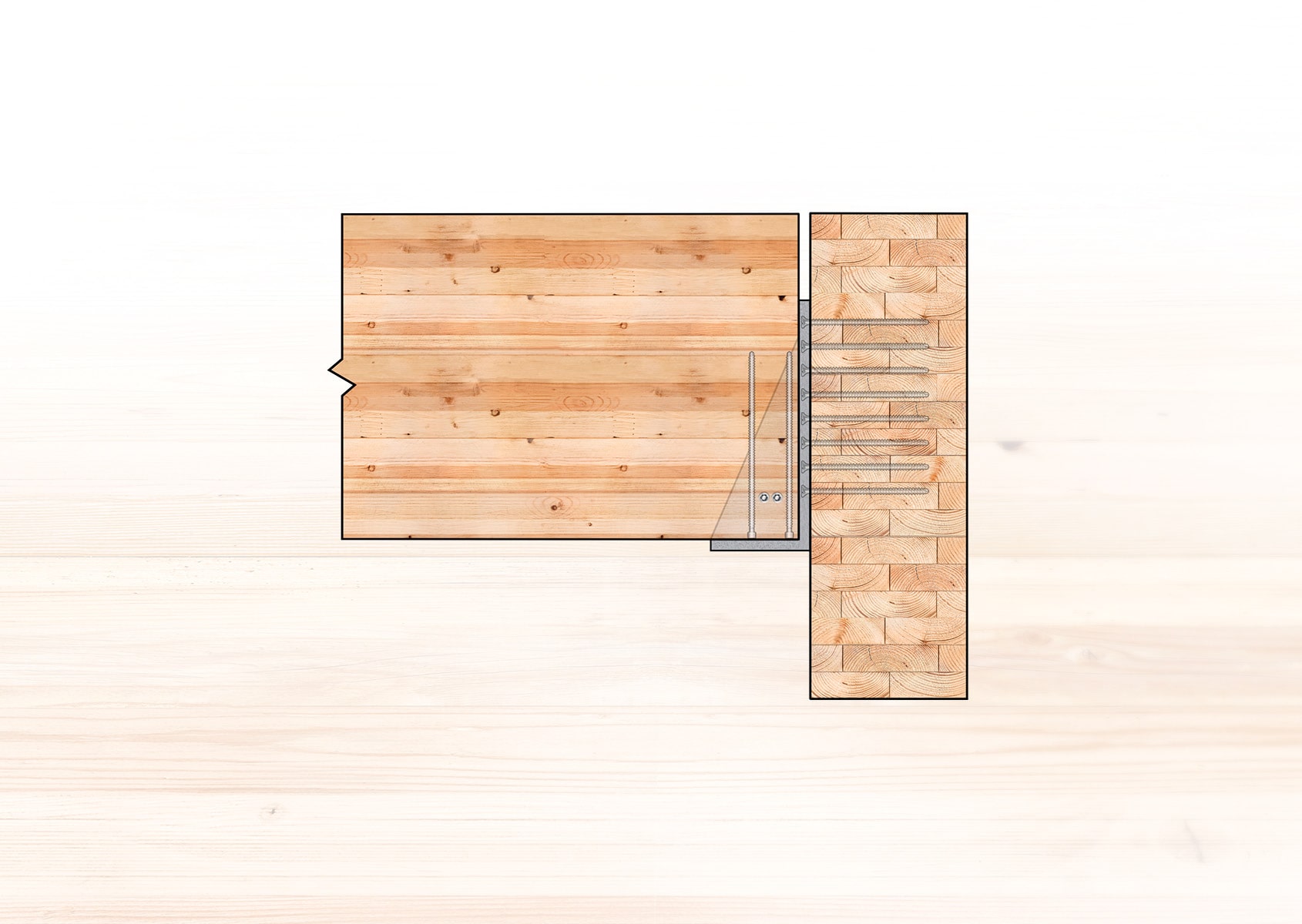
This white paper addresses the challenges faced by engineers and designers in the North American mass timber industry in selecting efficient members, particularly in relation to compression reinforcement perpendicular to grain using self-tapping screws. The current design standards in the US and Canada lack comprehensive methodologies for this specific application, necessitating the adaptation of European design equations and the development of new approaches tailored to North American mass timber construction.
North American standards often require empirical test results for acceptance, and the European equations used for screw buckling may not be recognized by authorities having jurisdiction. The study’s contributions lie in providing engineers and designers with practical guidance backed by empirical data and derived design values specifically for screws loaded in compression as compression reinforcement perpendicular to grain. It fills the existing literature gap, offering valuable insights into the behavior of self-tapping screws under compression loads. The design values provided here can be referenced when following the Reinforcement Design Guide.

The available literature and standardization for screws loaded in compression in wood remains limited, especially in comparison to the extensive research on their tension, shear, and withdrawal applications. To fill this gap, a series of tests was conducted on fully threaded ASSY screws installed at 90 degrees to the grain direction.

Test results for ASSY VG CYL screws with diameters of 5/16″ [8mm] and 3/8″ [10mm] in glulam produced from Black Spruce, Douglas-Fir, and Southern Yellow Pine establish a basis for allowable screw buckling values and factored design values for LRFD/LSD under ASTM D5457.

This study aims to optimize member selection efficiency by offering reliable data for incorporating self-tapping screws as reinforcement in bearing connections in glulam or CLT. By addressing the limitations of current design standards and providing practical guidance, the research supports engineers and designers in North America in achieving efficient and effective mass timber connection designs.
Register for a Technical Learning Session
Sign up for MTC Newsletter and keep up to date with all our progress.